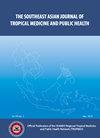巴基斯坦医院药剂师在门诊护理中的职业健康和安全态度
IF 0.1
4区 医学
Q4 INFECTIOUS DISEASES
Southeast Asian Journal of Tropical Medicine and Public Health
Pub Date : 2023-06-10
DOI:10.9734/ajmah/2023/v21i8849
引用次数: 0
摘要
背景:在发达国家,评估和监测医院药剂师职业健康风险的标准和安全措施已经得到了高度重视。然而,职业健康和安全在发展中国家往往被忽视。缺乏知识、不良培训做法和资源不足是造成职业卫生标准差的几个原因。目的:本研究的目的是评估巴基斯坦医院药剂师在门诊护理中的职业健康和安全态度。方法:采用描述性横断面研究设计。调查对象包括在伊斯兰堡和拉瓦尔品第工作的医院药剂师。计算样本量为382,达到95%的置信水平,误差范围为5%。采用方便抽样方法选择调查对象。使用预先验证的工具安全态度问卷-流动版。收集数据后使用SPSS 21进行编码和分析。计算由频率和百分比组成的描述性统计。根据不同人口统计学变量采用Mann-Whitney和Kruskal-Wallis检验(p≥0.05)。结果:不同性别、不同城市、不同文化程度、不同年龄、不同工作经历、不同工作环境、不同工资水平的被调查者对门诊护理职业健康安全态度的认知差异有统计学意义(p<0.05)。与男性受访者相比,女性对门诊护理的安全态度较差。与其他受访者相比,有1-5年工作经验的受访者对安全的态度较差。与在公共部门工作的答复者相比,在私营部门工作的答复者对职业健康和安全的态度较差。结论:医院门诊药师职业健康安全态度良好。受访者一致认为,由于工作压力和工作量,他们犯了错误。应开展培训,提高医院门诊药师的职业健康安全态度。本文章由计算机程序翻译,如有差异,请以英文原文为准。
Perceptions Regarding Occupational Health and Safety Attitudes of Hospital Pharmacists in Ambulatory Care in Pakistan
Background: Standards for assessing and monitoring occupational health risks and safety measures for hospital pharmacists have been given prime importance in developed countries. However, occupational health and safety has often been neglected in developing countries. Lack of knowledge, poor training practices and insufficient resources are few of the reasons behind poor occupational health standards.
Objective: The objective of the study was to assess perceptions regarding occupational health and safety attitudes of hospital pharmacists in ambulatory care in Pakistan.
Methodology: A descriptive cross-sectional study design was used. The study respondents included hospital pharmacists working in Islamabad and Rawalpindi. Sample size was calculated to be 382 to achieve 95% confidence level with 5% margin of error. Convenient sampling technique was used to select respondents. A pre-validated tool Safety Attitudes Questionnaire-Ambulatory Version was used. Data was coded and analyzed using SPSS 21 after collection. Descriptive statistics comprising of frequency and percentages were calculated. Mann-Whitney and Kruskal-Wallis (p ≥ 0.05) tests were applied according to different demographic variables.
Results: Significant difference (p<0.05) was observed in perceptions of occupational health and safety attitudes in ambulatory care among respondents of different genders, cities, education level, age groups, experience, setting and salary. Females had poor safety attitudes in ambulatory care as compared to male respondents. Respondents having experience between 1-5 years had poor safety attitude as compared to other respondents. Respondents working in private sector had poor occupational health and safety attitudes as compared to those working in public sector.
Conclusion: The present study concluded that hospital pharmacists working in ambulatory care had satisfactory occupational health and safety attitudes. Respondents agreed that they had made errors due to workplace pressures and workload. Trainings should be conducted to improve the occupational health and safety attitudes of hospital pharmacists in ambulatory care.
求助全文
通过发布文献求助,成功后即可免费获取论文全文。
去求助
来源期刊

Southeast Asian Journal of Tropical Medicine and Public Health
PUBLIC, ENVIRONMENTAL & OCCUPATIONAL HEALTH-INFECTIOUS DISEASES
CiteScore
0.40
自引率
0.00%
发文量
0
审稿时长
3-8 weeks
期刊介绍:
The SEAMEO* Regional Tropical Medicine and Public Health Project was established in 1967 to help improve the health and standard of living of the peoples of Southeast Asia by pooling manpower resources of the participating SEAMEO member countries in a cooperative endeavor to develop and upgrade the research and training capabilities of the existing facilities in these countries. By promoting effective regional cooperation among the participating national centers, it is hoped to minimize waste in duplication of programs and activities. In 1992 the Project was renamed the SEAMEO Regional Tropical Medicine and Public Health Network.
 求助内容:
求助内容: 应助结果提醒方式:
应助结果提醒方式:


